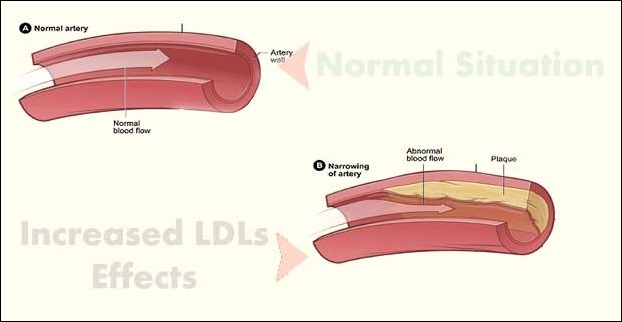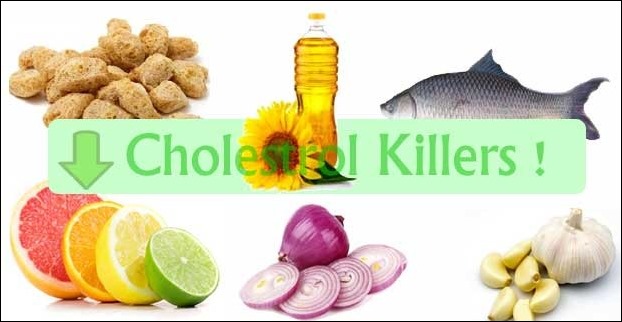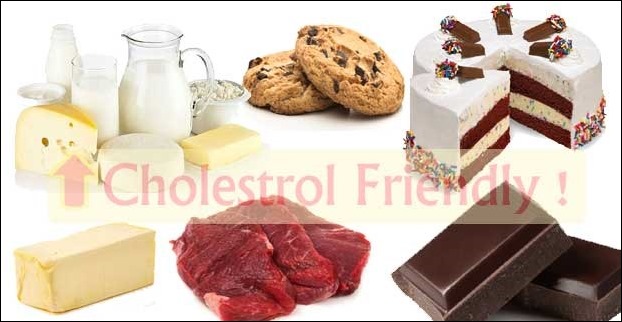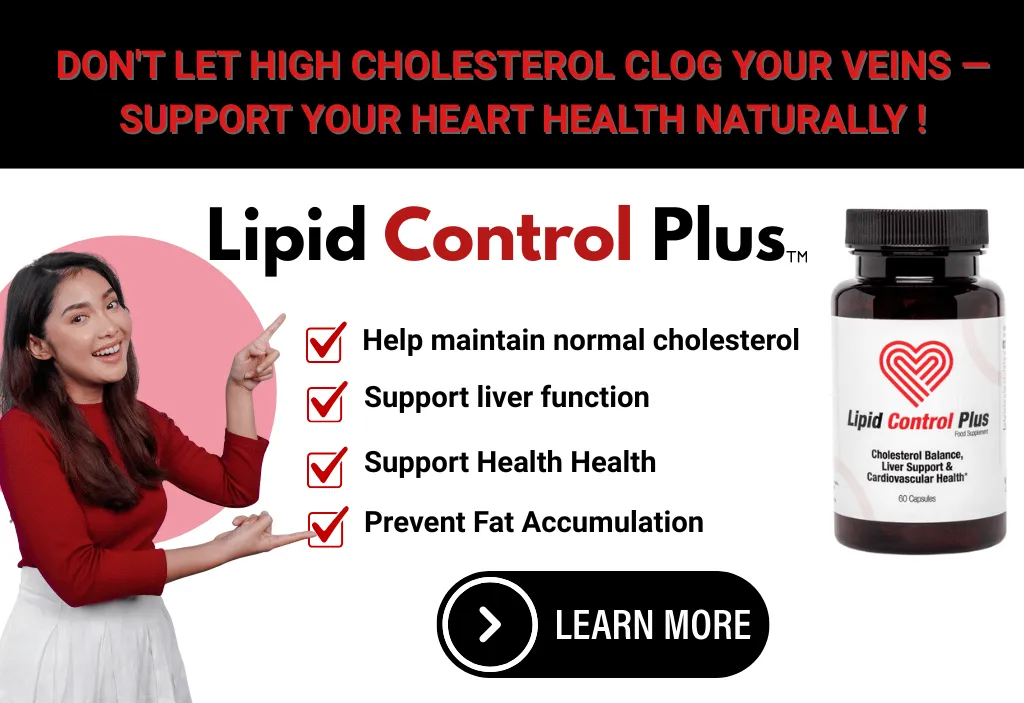High levels of blood cholesterol can lead to blocked arteries. As you know, blood is supplied by the arteries to the heart and if it is blocked, a heart attack can occur. In the same way, if the artery that supplies blood to the brain becomes blocked, a stroke may occur.
Cholesterol is often portrayed as a dietary evil, nevertheless, it is utmost necessary to live. In point of fact, the body needs cholesterol to make cell membranes, vitamin D, bile, sex hormones and nerve sheaths. These fall to serum cholesterol which is a waxy and fatlike compound and known as a lipid. It does circulate in the bloodstream. The liver makes about one gram each day, that is all the body needs.
The body does not need dietary cholesterol, which is found only in animal products. There are several factors like genetics, exercise and other components of the diet which influence how the human body processes dietary cholesterol. Surprisingly, some people consume large amounts but they have normal blood levels, on the other hand, some people consume very little but they have high blood cholesterol.
GOOD AND BAD CHOLESTEROL

Cholesterol molecules attach themselves to lipid carrying proteins, which is also called lipoprotein when they travel through the bloodstream. There are two types of lipoproteins which are the principal transporters of the cholesterol- low-density lipoproteins (LDLs) and high-density lipoproteins (HDLs). Most of the remainder is attached to HDLs, while the LDLs carry two-third of it.
LDLs are called ‘bad cholesterol’ because they tend to deposit cholesterol in the artery walls, leading to an increased risk of heart disease and atherosclerosis. On the other hand, the HDLs are known as ‘good cholesterol’ because they collect cholesterol from the artery walls and take it to the liver. In the liver, it is metabolized and then eliminated from the body. Apart from these, there is a third type of cholesterol which is known as very-low-density lipoproteins (VLDLs). It carries a small amount of cholesterol and triglycerides.
FIND OUT CHOLESTEROL LEVEL
A blood cholesterol test measures the amount of cholesterol in the blood. This is expressed in two ways- in terms of milligrams (mg) of cholesterol per deciliter and secondly, millimoles (mmol) of cholesterol per litre. The multiplication factor 0.026 converts the milligram system to the millimole system.
A value below 200 mg/dl (5.2 mmol/l) is good, but, nonetheless, if it is more than 200 mg/dl, then there is a need to measure LDL and HDL levels. LDL levels must be below 130 mg/dl (3.5 mmol/l) while over 160 is absolutely not good and it can be a cause of a heart attack and coronary artery disease. On the other hand, HDL level must be at least 45 mg/dl and the higher.
HOW DIET CAN BE USEFUL
According to experts, dietary modification is appropriate if the cholesterol level is above 200 mg/dl. First of all, the intake of saturated fats should be reduced. It can low blood cholesterol levels. Whole milk, full-fat dairy products and tropical oils should be taken in a little quantity. In addition, tobacco and tobacco smoke should be completely avoided.
BEST FOODS TO REDUCE CHOLESTEROL

Citrus fruits and onions have been shown to promote healthy cholesterol level. Soy protein which is found in soybeans, soy beverages and tofu helps to lower cholesterol level. Garlic is also beneficial in lowering cholesterol levels. Rich source of Omega 3 fatty acids such as salmon, tuna, sardines, mackerel and other cold-water fish reduce the risk of heart disease by lowering blood cholesterol levels.
In addition to these, plant sterols, which are found in vegetable oils, sesame and sunflower oils, nuts and legumes, have been shown to lower cholesterol level when consumed as part of a heart-healthy diet. At the same time, regular consumption of carrots is beneficial in lowering cholesterol levels.
FOODS THAT INCREASE CHOLESTEROL

- Full-fat dairy products like butter, cream and cheese which are high in saturated fats
- Cookies, chocolates, pastries and cakes which are made with hydrogenated oils or tropical oils
- Hard margarine and vegetable shortening which are high in trans-fatty acid and saturated fats
- Meat products and fatty meats especially salamis, marbled beef, bacon, hamburgers, pork and lamb chops and other cold cuts
FOOD THAT CAN LOWER CHOLESTEROL
- Fruits especially apples, oranges, pears, bananas and dried fruits such as figs, prunes and apricots
- Whole wheat, rye, pumpernickel, multigrain bread and rolls
- vegetables such as kidney beans, sweet corn, garlic, onions, lima beans and other legumes, Tofu and other soy products
- Nuts especially walnuts, almonds pecans and seeds like sesame seeds. Sunflowers seeds which are greatly beneficial for diabetics is also a nice cholesterol controlling ingredient.
- Olive oil, sunflower oil, cottonseed oil and non-hydrogenated soft margarine
- Oatmeal and breakfast cereals which contain oat or rice bran
CONCLUSION
Apart from these, weight loss, regular exercise and stress reduction can also improve the LDL and HDL ratio and lower cholesterol. Moreover, moderate alcohol intake reduces the risk of a heart attack because alcohol has the ability to raise the HDL level.

Lifebing is driven by an unrelenting passion for promoting health and well-being, our team is wholly committed to curating exceptional content and immersive experiences.

